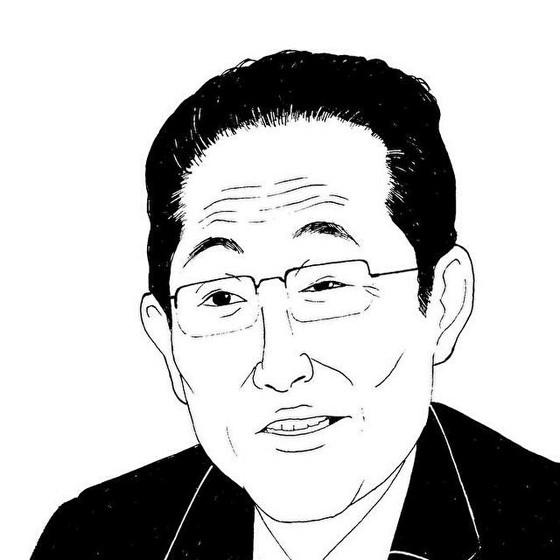 |
Prior to this, President Moon Jae-in sent a letter to Prime Minister Kishida on the 4th to congratulate him on his inauguration. In a letter, President Moon stated that he would like to work together to develop Korea-Japan relations in a future-oriented manner.
Meanwhile, over the former recruitment (recruitment) issue, a member of the innovative ruling party "Democratic Party of Korea" and a lawyer in charge of the former recruitment (recruitment) proceedings presented a series of proposals for the progress of the situation. Was done.
According to the Korean newspaper JoongAng Ilbo, “Democratic Party of Korea” Rep. Lee Sang-min said at the Foreign Affairs and Unification Committee of the National Assembly on the 6th, “Korea-Japan relations are the worst Why don't you show your leadership and pay the Korean government on your behalf? Through this, you can protect the self-esteem of South Korea and solve the problems that are being confused between Korea and Japan. "
The South Korean government proposed to compensate the victims first and then to the Japanese companies, and Ambassador Kang, who attended the Foreign Affairs and Unification Committee, said, "It's a good idea. I know that we are considering it as. "
Ambassador to Japan Kang said in an interview with the Japanese media when he was appointed as Ambassador to Japan, "We have to find a solution that allows Korea and Japan to make a name for themselves. There are various methods." He also mentioned the idea of "subrogation payment".
The proposal for subrogation payment has been proposed by then-Chairman of the Korean National Assembly, Moon Hee-sang (Moon Hee-sang) in 2019. Chairman Mun created a fund by soliciting donations from Japanese and Korean companies and individuals, and proposed that the fund pay the former recruitment workers (recruitment workers) instead of compensation by Japanese companies. However, the plaintiff's former recruitment work (recruitment work) raised a backlash, and it never happened.
Meanwhile, Lim Jae-sung, a lawyer in charge of the former recruitment (recruitment) proceedings, wrote in a contribution to the Hankyoreh newspaper on the 7th entitled "Proposal to the new Prime Minister Kishida", "My individual who is one of the agents. Opinion ”, and made a proposal regarding the former recruitment work (recruitment work) problem.
Specifically, (1) the former recruitment worker (recruitment worker) and the Japanese company will hold at least three consultations (2) during the discussion, the monetization procedure currently underway and further asset seizure (3) The consultation procedure is guaranteed by the governments of South Korea and Japan, and participation as an observer is mentioned.
Both the proposal of "substitute payment" by Representative B and the proposal of "direct consultation between former recruitment workers and Japanese companies" by Lim lawyer strongly demands that the responsibilities of Japanese companies be clarified. ) Is a major premise. Attorney Lim has indicated that he intends to discuss his proposal with plaintiffs' former recruiters and support groups if positive discussions are possible.
Since the Japanese government is asking the South Korean side to show a solution, it will be necessary for the Japanese government to show its intention when the above proposal is proposed as an official solution of the Korean government.
On the other hand, there is a reason why "(recruitment work)" is added after "former recruitment work" in this commentary. This is because the impression of responsibility changes completely when "recruitment" is rephrased as "recruitment" in the articles so far. In the "recruitment trial" that began with the complaints of the four plaintiffs who claimed to have been recruited, which of the four positions was "recruitment," "public ARRANGING," or "recruitment?"
It is obvious from the contribution that the plaintiff's lawyer, Lim, published in the Korean magazine "Current Affairs IN" in 2019.
"Shin Jeong-soo was born in 1926, the fourth of eight brothers and sisters. It was a wealthy house. When a famine broke out, he took out the rice from the warehouse and shared it with the townspeople, etc. It's a vivid memory that the children had a harmonica they didn't have. Shin Jeong-soo said he was happy when he was young. "
"Due to his father's failure to invest in gold mining, 16-year-old Shin Jeong-soo moved to Seoul alone from Jeollanam-do in 1942. He worked at coffee shops and bars at any job, and half of the money he received went to his parents' house. I sent it. In 1943, I saw a recruitment advertisement posted in front of the cafeteria. "You can learn the technique after two years of training at the ironworks in Seoul. You can get a job as a person. The treatment is good and you can send it to your parents' house. ""
"Shin Jeong-soo took the entrance exam immediately. Maybe the good conditions were rumored, 500 people gathered for 100 recruitment. It is quite a good idea for colonial young people to go to Japan and learn technology. After confirming his Japanese ability and whether there were any independence movement participants among his relatives, Shin Jeong-soo moved to Busan, from Busan to Shimonoseki, and then to Osaka. "
"The dormitory of Nippon Steel's Osaka factory, which Shin Jeong-soo remembers, is as follows." There was an iron grill on the window of the dormitory. Was locked. I thought I was in a place where I couldn't go in and out without permission. "
"The work I started in September 1943 was completely different from what I expected. I came to learn the technology, but the actual work was to repeatedly push coal in front of the simmering blast furnace. It was. Once every few days, I went into an iron pipe with a length of 100 m or more to send heat to the blast furnace and cleaned it. It was the most difficult task. Among the iron pipes where the heat was not cooled, Shin Jeong-soo I sweated enough to dehydrate and spit black because I drank coal dust. I was always starving because of the absolute shortage of food provided. "
"I didn't have a monthly salary to send money to my parents' house. Nippon Steel forced me to put the entire amount into the" postal savings "while paying the initial salary. The reason was, "I'm going to run away." The 17-year-old man wouldn't have known the fact that he couldn't get this money back until he died. "
"Shin Jeong-soo told his friend that he wanted to run away. A few days later, the superintendent gathered the people in the dormitory and hit him with a wooden sword, saying,'Shin Jeong-soo tried to run away.'" Shin Jeong-soo's testimony. "I was hit with a wooden sword about 20th and I thought I was going to die." The Osaka Steel was a hell to the Korean youths who saw a colleague trying to escape being beaten to death. It was finally over with the defeat of Japan. "
In the above contribution by Attorney Lim, it seems that Mr. Shin Jeong-soo was an "recruiter" or a "recruiter". It seems certain that the plaintiff has experienced an unfortunate past, but it is unreasonable to judge it as a state-responsible recruitment.
Even if it is a requisition, even if the result of the trial in South Korea orders compensation for Japanese companies, the Korean government should take responsibility for compensation under the 1965 treaty. To that end, Japan was paying $ 800 million at the time, which was comparable to the national budget.
The South Korean side will say that it would be the same if the South Korean government "paid on behalf of" the recruitment workers and later the Korean government abandoned the claim against Japanese companies, but the Japanese government will not respond to it. ..
Attorney Lim titled the contribution as "a proceeding that changed the history of Shin Jeong-soo, who was taken away by Nippon Steel." Is it really "for the plaintiffs" if we deliberately mix recruitment and recruitment and change history in a way that applies the current Labor Standards ruler to the past 80 years ago, without considering the background of the times? .. Is it really "for Korea"?
2021/10/14 21:27 KST


![[Breaking News] "Moving" wins the prestigious Grand Prize at the 60th Baeksang Arts Awards, "Best Korean TV Series of 2023"!](/img/topic/23/116537/248878_640W.webp)